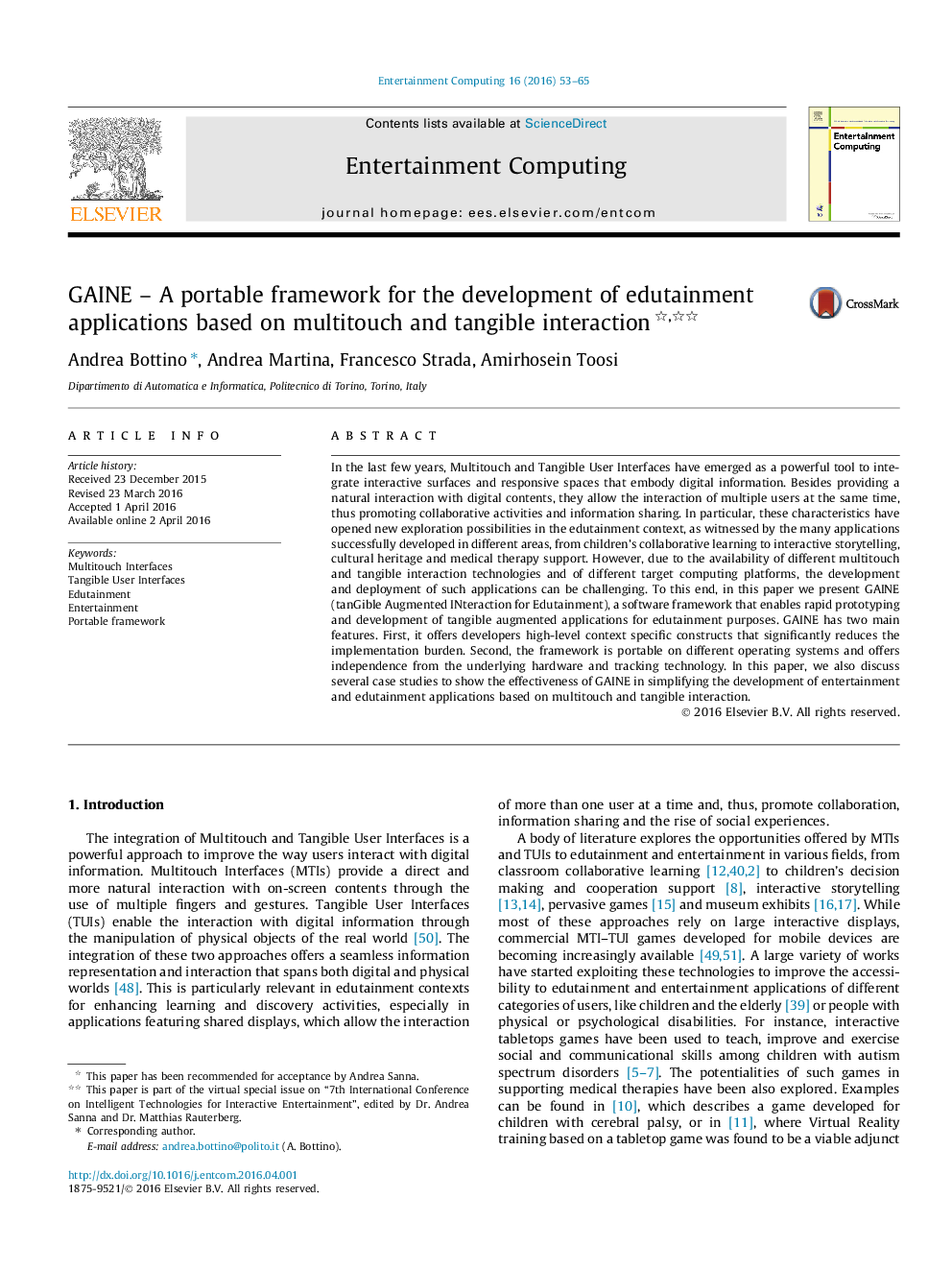| Article ID | Journal | Published Year | Pages | File Type |
|---|---|---|---|---|
| 381792 | Entertainment Computing | 2016 | 13 Pages |
•Edutainment applications can benefit from the integration of Multitouch and Tangible UI.•The development of applications exploiting both MTI and TUI is often complex.•Targeting different computing platforms and tracking hardware adds more issues.•A portable software framework for developing MTI–TUI edutainment application is described.•Several case studies are discussed, showing how GAINE affects the development process.
In the last few years, Multitouch and Tangible User Interfaces have emerged as a powerful tool to integrate interactive surfaces and responsive spaces that embody digital information. Besides providing a natural interaction with digital contents, they allow the interaction of multiple users at the same time, thus promoting collaborative activities and information sharing. In particular, these characteristics have opened new exploration possibilities in the edutainment context, as witnessed by the many applications successfully developed in different areas, from children’s collaborative learning to interactive storytelling, cultural heritage and medical therapy support. However, due to the availability of different multitouch and tangible interaction technologies and of different target computing platforms, the development and deployment of such applications can be challenging. To this end, in this paper we present GAINE (tanGible Augmented INteraction for Edutainment), a software framework that enables rapid prototyping and development of tangible augmented applications for edutainment purposes. GAINE has two main features. First, it offers developers high-level context specific constructs that significantly reduces the implementation burden. Second, the framework is portable on different operating systems and offers independence from the underlying hardware and tracking technology. In this paper, we also discuss several case studies to show the effectiveness of GAINE in simplifying the development of entertainment and edutainment applications based on multitouch and tangible interaction.
